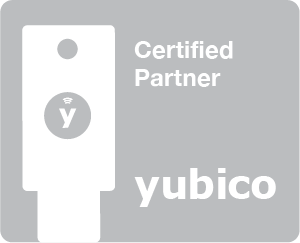Solar panels & solar cells: Your universal energy source for every situation
Solar panels are crucial for the use of renewable energies and, along with wind turbines, form the backbone of the energy transition. They consist of several solar cells mounted on a frame and connected either in series or in parallel. A weather-resistant glass cover protects the cells from external influences. Installing a solar module is faster and more efficient than connecting solar cells individually.
What is a solar module?
Solar panels and solar modules are two terms that are often used interchangeably to refer to the same device. They both refer to an assembly of solar cells that convert sunlight into electricity. This conversion is done through a process called photovoltaics.
Each solar cell is made of a semiconductor material, usually silicon, which is treated to produce electricity when sunlight hits it. The solar cells are arranged in a module or panel so that they can work together to produce a useful amount of electricity.
Structure of a solar panel
A solar module or panel is made up of several parts:
Solar cells: These are the active elements that convert sunlight into electricity.
Framing: This is often a metal frame that protects the solar cells and gives them structure.
Glass cover: This protects the solar cells from the weather while allowing sunlight to reach the cells.
Back foil and seals: These prevent moisture from entering the module and affecting performance or causing damage.
It is also important to know that several solar modules or panels can be combined to form a solar system. Such systems can generate enough electricity to power a home, an office or even an entire community.
What types of solar cells are available?
There are different types of solar cells, including polycrystalline modules, monocrystalline photovoltaic modules, and thin-film modules. Polycrystalline modules are made from cast silicon, while monocrystalline modules are cut from high-purity rods. Monocrystalline modules have a higher efficiency than polycrystalline modules but are also more expensive. Thin-film modules are made of amorphous silicon or other semiconductor materials and are more flexible but have a lower efficiency.
Solar panels for DIY projects indoors
Solar panels are ideal for DIY projects. They allow you to create your own green energy system that is both environmentally friendly and cost effective. Here are some ways you can use solar panels for your DIY projects:
Solar-powered lighting system: With a few solar panels, a battery, and some LED lights, you can create a simple solar-powered lighting system for your garden, patio or even your indoor space.
Solar irrigation system: If you have a garden, you could build a solar irrigation system. With the help of a solar pump and some solar panels, the water can be pumped during the sunniest times of the day.
Solar-powered charging stations: Tired of having to constantly search for a power outlet to charge your mobile phone or other devices? With a solar panel and a battery, you can create your own solar-powered charging station.
Solar-powered hot water systems: With solar panels and a heat exchanger, you can build a solar-powered hot water system for your home. This can be especially useful if you live in an area that gets plenty of sunlight all year round.
Whatever DIY project you decide to tackle, don't forget to keep an eye on the output of the solar panels and the amount of energy you need. It's important to assess your needs properly so you can get the most out of your DIY solar project. There is a wide range of solar panels available with different outputs and sizes, so you are sure to find the perfect panels for your project.
Use your solar panels outdoors: Solar panels are designed for outdoor use and play an essential role in many applications. Here are some examples of how solar panels can be used outdoors:
Camping and outdoor adventures: solar panels can power your electronic devices such as mobile phones, cameras, or laptops while you are out and about. There are portable and lightweight solar panels that are specially designed for outdoor activities such as camping, hiking, or mountaineering. They are usually waterproof and durable to withstand various weather conditions.
Outdoor lighting: Solar panels can also be used to power outdoor lighting systems. These include garden lights, street lights or security lights, for example. These systems charge their batteries during the day and use the stored energy to generate light at night.
Off-grid systems: In remote areas where there is no access to the grid, solar panels are a reliable source of electricity. They can be used to power pumping systems for irrigation or drinking water, to supply power to cabins or holiday homes, or for other applications.
Outdoor events: For outdoor events such as festivals or markets, solar panels can provide an environmentally friendly source of electricity. They can be used to power food stalls, music stages or light installations.
Charging electric vehicles: With the growing popularity of electric vehicles, the demand for solar panels to charge them is also increasing. There are special solar carports and car parks equipped with solar panels that serve as charging stations.
Please note, however, that the efficiency of the solar panels is highly dependent on the amount of incident sunlight. So make sure they are placed so that they can capture the most daylight. In addition, solar panels require regular cleaning and maintenance to maintain their efficiency.
What do you need to consider when purchasing solar modules?
When purchasing solar modules, it is important to consider the area of the solar installation, the available space, the desired electricity demand, and the rated voltage of the modules. The statics of the roof should be checked during installation to ensure load-bearing capacity. Adequate moisture protection is also critical, as moisture can damage the module.
It is advisable to use a solar calculator to perform the calculation for the solar installation and select the appropriate products according to individual needs.
Our expert tip: Ensure sufficient protection against moisture!
Certainly, a decisive factor for the longevity and efficiency of your solar modules is protection against moisture. Although solar modules are designed for outdoor use and are usually well protected against the elements, moisture and water can still be harmful under certain conditions. Here are some tips to effectively protect your solar panels from moisture:
When using solar panels, adequate protection from moisture is crucial:
Proper installation: make sure your solar panels are installed in a way that allows water to drain away easily, and that they are not constantly exposed to splashing or ponding water.
No drilling: Avoid drilling holes in the frame of the modules as this can compromise their water-repellent properties.
Regular checks: Check the modules regularly for signs of moisture or water damage so that you can react in time.
Consider the location: In regions with high humidity or a lot of precipitation, additional protective measures may be necessary.
Professional installation: If you are unsure, consult a professional for installation to ensure that the solar panels are installed correctly and safely.


















